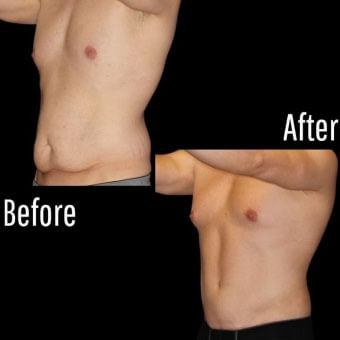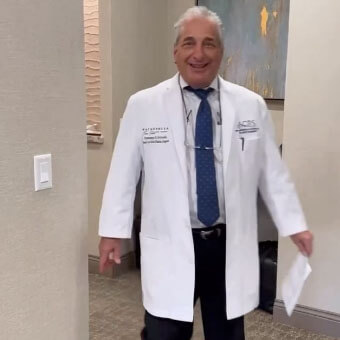Houston Plastic Surgeon Dr. Chris Patronella Participates in Study Evaluating New Pain Relief Medication’s Effects Upon Breast Augmentation Patients
Posted December 31, 2014 in Breast Augmentation, Plastic Surgeon
By Sherri Roberts
sherri@mybeautifulbody.com
While his surgical artistry and expertise have earned him numerous awards and speaking invitations to plastic surgeons across the globe, Houston plastic surgeon Dr. Chris Patronella considers his commitment to optimizing the care and recovery of his patients an equally significant component behind the growth and success of his practice. In addition to carefully selecting staff members who have the golden combination of both professional skill and a warm, compassionate manner of caring for patients, Dr. Patronella has participated in numerous research studies with the goal to enhance the safety, results, and postoperative healing of his patients.
Considered by many of his peers to be one of the nation’s foremost breast augmentation and revision specialists, Dr. Patronella was invited to participate in clinical trials to assess the safety and effectiveness of a newly-formulated pain relief medication following breast augmentation surgery. As a new formulation of bupivacaine−one of the most commonly used anesthetics for postsurgical pain management−DepoFoam® bupivacaine was designed to provide longer-lasting pain relief than that delivered by bupivacaine.
In the study, Dr. Patronella and his physician colleagues evaluated a total of 94 women who received DepoFoam® bupivacaine following breast augmentation surgery with breast implants. Patients completed a questionnaire to evaluate issues such as breast pain, tenderness, tingling, numbness, and changes in sensation. In addition, the women’s postoperative healing and the integrity of the implants were assessed.
Results showed that most patients reported none of these symptoms and experienced no changes to the nipples or size and shape of the breasts. Researchers concluded DepoFoam® bupivacaine was well-tolerated and not associated with any long-term complications that would compromise the integrity of the breast implants. The study is thought to provide the first published report of results from a long-term evaluation of the effects of local analgesics on the integrity of breast implants.
“We’re always looking for ways to make the postoperative recovery of our patients as comfortable as possible,” said Dr. Patronella. In addition to this study, Dr. Patronella has participated in numerous studies to enhance patient safety and results through the ACPS Center for Clinical Research and Education. He and his colleagues received the prestigious “Best Aesthetic Surgery Journal Article” of 2008 award for their article which documented their research and recommendations to improve the safety of patients based upon their review of 3871 cases (“Thromboembolism in High-Risk Aesthetic Surgery: Experience with 17 Patients in a Review of 3871 Cases”). In addition, Dr. Patronella has presented his research and expertise to optimize patient care and satisfaction and improve body contouring and breast surgery results to his colleagues at plastic surgery meetings.







